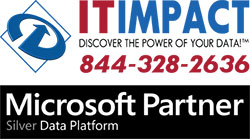If you’re serious about programming, we’ve got one word for you: databases.

Databases and languages that are used to communicate with databases, like SQL, can handle significantly more data than spreadsheets and manage the back-end of most modern-day web applications. It’s like switching from a Honda Civic to a Ferrari. It’s faster, sleeker, and can handle whatever you throw at it.
So if you want a lucrative programming career (even the lowest paid SQL developers make upwards of $60,000 a year), it’s imperative that you learn a database programming language like SQL. But where do you start?
Luckily, there are tons of online courses that can help you master SQL without going back to school — like the Ultimate SQL Bootcamp. This bundle gives you lifetime access to nine courses and more than 500 easy-to-follow lessons. Whether you want to work full-time as an IT database administrator or work remotely as a freelancer, this bundle will teach you everything you need to hit the ground running and become an SQL-programming machine.
Here are the seven essential skills you will master:
1. Learn to structure a database
The first step of mastering SQL: understanding what exactly a database is to begin with. Learn the ins and outs of database tables and relationships, and understand how to structure one from scratch.
2. Author SQL statements & clauses
Once you understand the structure and building blocks of a database, it’s time to learn to extract the information you need using SQL queries. You’ll study a variety of statements and clauses, as you master the art of manipulating data to perform whatever task is at hand.
3. Manage a SQL database
If you plan to pursue a career in IT or data science, you’ll want to learn how to manage a database and set it up for scalable growth. Learn to administer an SQL database and all the tasks that entail.
4. Work with popular database systems like MySQL and PostgreSQL
While SQL is the language used to interact with databases, MySQL is a database management system used to actually store your data. Throughout the included courses, you’ll learn to work with MySQL as well as some other popular database management systems, so you can manage access, limit users, and perform other tasks that would be asked of a database manager.
To read more click here.


